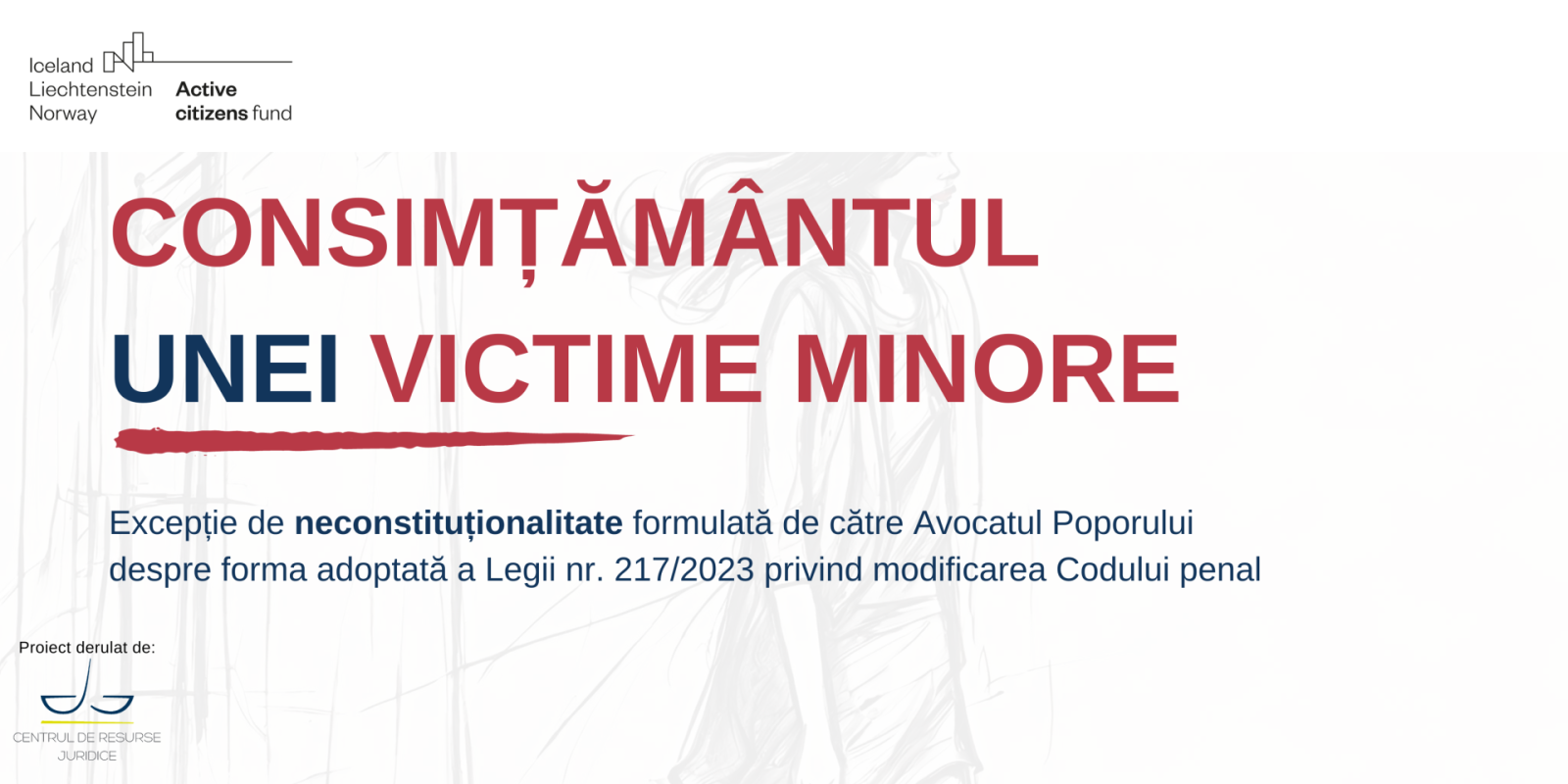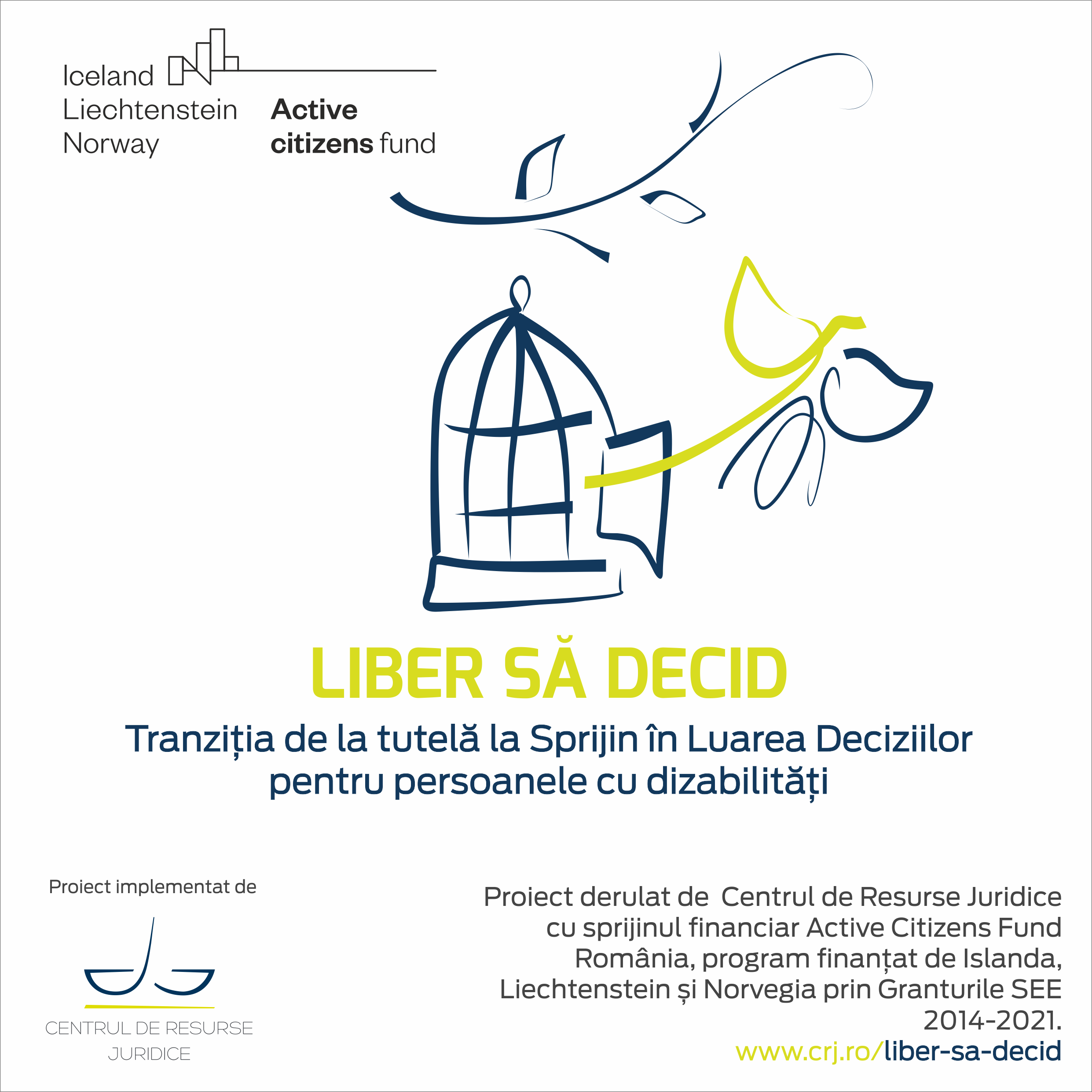The People’s Advocate referred to the Constitutional Court the exception of unconstitutionality concerning some provisions of the adopted form of the Law no. 217/2023 on the amendment of the Criminal Code. This concerns the case of non-punishment for sexual intercourse between an adult and a minor where the age difference is less than 5 years, provided for in Article 2181 para. (7). The objection of unconstitutionality submitted on October 5th, 2023 can be read in full HERE.
By Law no. 217/2023 for the amendment and completion of Law no. 286/2009 regarding the Criminal Code, of Law no. 135/2010 regarding the Criminal Procedure Code, as well as the Audiovisual Law no. 504/2002, the legislator amends several provisions of the Criminal Code in force, amendments that will enter into force on January 1st, 2024.
Thus, a new article is introduced, art. 2181: the rape of a minor.
What does art. 2181 para. (7) say?
Para. (7) – The facts provided for in para. (1) does not constitute a crime if the age difference between the perpetrator and the victim does not exceed 5 years.
* Para. (1) Sexual intercourse, oral or anal intercourse, as well as any other acts of vaginal or anal penetration committed by an adult with a minor who has not reached the age of 16 are punishable by imprisonment from 7 to 12 years and the prohibition of the exercise of certain rights.
It ends up that, by applying the non-punishment case, it is assumed that a minor of 13 years and one month, who consents to sexual intercourse with an 18-year-old, would have expressed a valid consent.
Thus, a contradiction is formed. By the same law, the age of sexual consent is raised to 16. However, by reason of non-punishment regulated in art. 2811 para. (7), it is assumed that a child who is just over 13 years old can consent to a sexual act.
“Art. 113 of the Criminal Code stipulates the limits of criminal liability, as follows: minors who have not reached the age of 14 are not criminally liable; the minor who is between 14 and 16 years old is criminally liable only if it is proven that he committed the act with discretion; the minor who has reached the age of 16 is criminally responsible according to the law.
By discernment is meant both the mental (psychical and intellectual) capacity of a person to understand the social consequences of the acts he/she commits and the capacity to manifest an unconstrained will to commit them.
Even if this legal text is concerned with the criminal liability of a perpetrator, the reasoning is all the stronger in considering that a minor, the victim of a crime, has no discernment under the age of 14, so that he cannot be aware of the consequences of a sexual act and, as such, cannot consent to a sexual act with an adult. It is an absolute presumption, but paradoxically, Article 2181 para. (7) overcomes it by establishing a necessary difference of 5 years between a victim of 13 years and one month and a perpetrator of 18 years, without which the act does not constitute a crime.”
Art. 1 point 9 of Law no. 217/2023, which introduces into the Criminal Code a cause of non-punishment through the provisions of art. 2181 para. (7), affects the constitutional provisions of art. 1 paragraph (3) and (5). […] Also, the criticized legal text violates art. 22 of the Constitution, regarding the right to life and to physical and mental integrity, art. 26 regarding intimate, family and private life, art. 34, which enshrines the right to health protection and art. 49 on the protection of children and young people, according to which children and young people enjoy a special regime of protection and assistance in realizing their rights.
By regulating such a case, the state has not fulfilled its positive obligation to adopt provisions that effectively punish rape and deter such serious violations of human integrity and dignity. Criminal law should not be interpreted and applied by analogy.
The CLR wrote about raising the age of sexual consent to 16 HERE.






